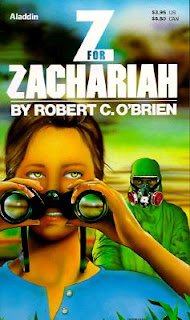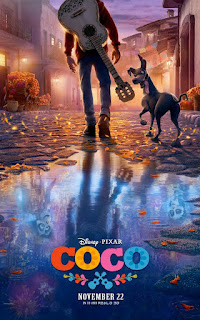ThrowBook Thursday: The Silver Chair
I have recently been on a The Silver Chair kick, thanks to talking about the upcoming film adaptation with some of the mods and members of NarniaWeb. It started with giving the audio book a second listen, after not going back to it for years because I hated Jeremy Northam's take on Puddleglum (read: it wasn't Tom Baker). Then I followed that up with the Focus on the Family radio adaptation, as well as the BBC Radio version. Due to that, this month's ThrowBook Thursday is a bit of a comparative review, taking a look at the different versions of the story.
The Silver Chair is perennially in my favorites of the Narnia books (to be fair, I love all of them), and with the production of the film adaptation moving forward, I'm hoping the production team really gets Narnia as a whole, not just this story. The movies till now have had a mixed vision of Narnia, falling somewhere between Lewis' Narnia and the average fantasy world of Hollywood (usually on the latter end of that spectrum). But The Silver Chair seems a more straightforward tale to adapt. That being said, I tend to fall back on a couple of scenes (and characters) that are my litmus test for how well an adaptation of this book does.
In the BBC Radio adaptation, this scene is also truncated. There's no mention of the Sun or Aslan until Puddleglum goes into his speech, and the scene feels entirely too quick. The tension and power are undercut by the need to speed through the beats. And the best line, the one that pushes the speech into excellence, is dropped. There is no "Four babies playing a game can make up a dream world that licks your real world hollow." And that is disappointing.
For my money, Tom Baker's Puddleglum still does the best at delivering this speech, though Northam does it justice as well.
The BBC Radio adaptation also shortens the scene with Aslan at the beginning, and speeds over Ettinsmoor so that there is no encounter with the giants there to contrast with the giants of Harfang. The children and Puddleglum have no sooner set out than they reach the giant's bridge and meet the Green Lady and her knight. Other small things are dropped (such as Puddleglum's tipsiness and the sleeping Father Time) and the Signs don't recur and repeat as much as in the book. One other significant scene that is removed in this adaptation is the lunch scene in Harfang during which Puddleglum and the children realize they've been eating a Talking Stag. This scene is necessary because of how much it emphasizes the way the trio has strayed from Aslan's instructions by coming to Harfang.
The FotF radio version has high production values, thrilling music, and generally excellent casting recommending it. However, as I said, its Puddleglum is a bit too dour. There is also the issue of Suchet's Aslan. Many people I know often treat Suchet's Aslan in the same way they treat the outlandish costuming of the BBC TV serials: poking fun with a bit of love. While FotF has such high production values, Suchet's Aslan is decidedly not Aslan. His attempts to sound like a lion often result in strange enunciation and result in readings of lines that mar the meaning rather than supporting it.
The BBC TV adaptation is, though low in production value, a fine adaptation if you're looking for faithfulness to the book. With a few small exceptions (Puddleglum's panic attack in the Underworld, the moving of part of Aslan's speech from Voyage to the end of The Silver Chair), this is the closest adaptation to the book, taking much of the dialogue directly from the book. Tom Baker is still a fantastic Puddleglum in my estimation, and the shining point of this version.
The audio book, read by Jeremy Northam, is splendidly narrated. I can't recommend it enough.
The Silver Chair is perennially in my favorites of the Narnia books (to be fair, I love all of them), and with the production of the film adaptation moving forward, I'm hoping the production team really gets Narnia as a whole, not just this story. The movies till now have had a mixed vision of Narnia, falling somewhere between Lewis' Narnia and the average fantasy world of Hollywood (usually on the latter end of that spectrum). But The Silver Chair seems a more straightforward tale to adapt. That being said, I tend to fall back on a couple of scenes (and characters) that are my litmus test for how well an adaptation of this book does.
Jill Meets Aslan
Really, if you don't get Aslan, you don't get Narnia. But this scene is especially important to get right because it lays the groundwork for the rest of the book not only in tone but in theme. Jill's reactions to Aslan from this point to the end are the landmarks of her character development. The Signs (and the call to remember them) guide the story forward, and Aslan's character here is perhaps his most inscrutable appearance because Jill's encounter with him is the most fearful and unsure. So far, the best version of this scene is actually (for my money) the BBC TV version from the early '90s. Though its production value leaves a great deal to be desired, this scene comes across almost perfectly as far as Jill's and Aslan's characterization go. This is the only version to include Aslan's line about swallowing up "girls, boys, men and women, kings and emperors, cities and realms" and get the tone that Lewis describes ("it just said it") right. Neither Northam (who reads the audio book) nor David Suchet (who plays Aslan in the FotF version) quite get the tone right, whereas the BBC radio version elides this exchange altogether (likely because they spent nearly half an hour getting to it, filling in the gap between The Voyage of the Dawn Treader and The Silver Chair with scenes in England and Narnia).Puddleglum's Speech
This is perhaps the most well-known and iconic scene in the novel. Puddleglum is the character most likely to go wrong in any adaptation. On the surface, he seems to be nothing but an eternal pessimist, but really he is the sort who wishes to be prepared for the worst outcome. So far the Puddleglum farthest from the book is (for me) the FotF version; much of this comes down to his accent, but it's really the way his voice always sounds so doleful. He rarely gets the levity of the book's Puddleglum, and the one time when it really comes through, it falls flat and seems off. That moment comes in this scene, when Puddleglum says, "It's funny, if you think about it. We're just babies making up a game, if you're right." And it winds up ruining the power of the rest of his speech.In the BBC Radio adaptation, this scene is also truncated. There's no mention of the Sun or Aslan until Puddleglum goes into his speech, and the scene feels entirely too quick. The tension and power are undercut by the need to speed through the beats. And the best line, the one that pushes the speech into excellence, is dropped. There is no "Four babies playing a game can make up a dream world that licks your real world hollow." And that is disappointing.
For my money, Tom Baker's Puddleglum still does the best at delivering this speech, though Northam does it justice as well.
Other Points of Comparison
The BBC radio adaptation is the briefest of the four adaptations we've had so far, and its briefer length unsettles the flow of the story. Rather than begin with Jill and Eustace behind the gym at Experiment House, it adds scenes of Eustace, Edmund, and Lucy discussing Narnia and what's gone on since they've been back in England. These scenes (very clumsy affairs that shift the book's opening focus from Jill to Eustace) are interspersed with scenes from Narnia that follow Caspian's life from his marriage to Ramandu's daughter to her death and Rilian's disappearance. While the Narnian scenes (mostly) serve no more purpose than to present the prince's story upfront, they also make the opening of the story take a bit longer than necessary. The one shining moment of this sequence is the deft handling of Drinian's explanation to Caspian about Rilian's disappearance and Caspian's reaction. The BBC TV version, with its half-hearted drawing of a sword, makes this scene a laugh instead of a serious moment.The BBC Radio adaptation also shortens the scene with Aslan at the beginning, and speeds over Ettinsmoor so that there is no encounter with the giants there to contrast with the giants of Harfang. The children and Puddleglum have no sooner set out than they reach the giant's bridge and meet the Green Lady and her knight. Other small things are dropped (such as Puddleglum's tipsiness and the sleeping Father Time) and the Signs don't recur and repeat as much as in the book. One other significant scene that is removed in this adaptation is the lunch scene in Harfang during which Puddleglum and the children realize they've been eating a Talking Stag. This scene is necessary because of how much it emphasizes the way the trio has strayed from Aslan's instructions by coming to Harfang.
The FotF radio version has high production values, thrilling music, and generally excellent casting recommending it. However, as I said, its Puddleglum is a bit too dour. There is also the issue of Suchet's Aslan. Many people I know often treat Suchet's Aslan in the same way they treat the outlandish costuming of the BBC TV serials: poking fun with a bit of love. While FotF has such high production values, Suchet's Aslan is decidedly not Aslan. His attempts to sound like a lion often result in strange enunciation and result in readings of lines that mar the meaning rather than supporting it.
The BBC TV adaptation is, though low in production value, a fine adaptation if you're looking for faithfulness to the book. With a few small exceptions (Puddleglum's panic attack in the Underworld, the moving of part of Aslan's speech from Voyage to the end of The Silver Chair), this is the closest adaptation to the book, taking much of the dialogue directly from the book. Tom Baker is still a fantastic Puddleglum in my estimation, and the shining point of this version.
The audio book, read by Jeremy Northam, is splendidly narrated. I can't recommend it enough.




Comments
Post a Comment
What do you think?